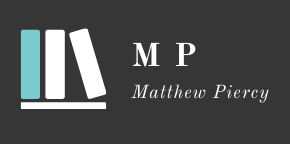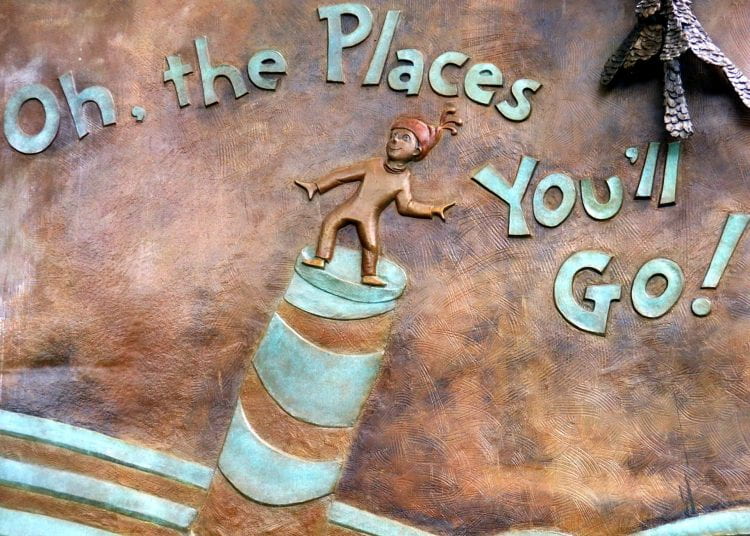The emergence of innovative teaching methodologies continues to reshape the way we prepare the leaders of tomorrow. Though numerous events and ways of learning are unfolding, a sound seemingly rings out. One that is ubiquitous, a symphonic and synchronous echo full of hope, reminding me of the value of holding fast to what it might mean to be progressive. Global Online Academy, more flexible scheduling, Hunter and Gatherer Education, and Khan Academy all naturally command my focus.
Fostering Independence: The Teacher’s Path to Becoming Unnecessary
This semester I am teaching two courses for Global Online Academy, an “institution” predating COVID-19 by nearly a decade. With a mission “to reimagine learning to empower students and educators to thrive in a globally networked society,” GOA is about reimagining learning. Currently, enrollment is at its highest, welcoming 14,000 students these past weeks. Students often are curious about the frequency of Zooms. For some there are memories, possibly not so positive, of 2020 when many schools just transferred classrooms to online, expecting students to be glued to their screens in a more traditional lecture approach. What students however quickly learn through experience and the bi-weekly Zoom usually is what is reflected upon as bringing so much connection and joy. Students from across the globe meet, are offered differing perspectives, and both provide and receive valuable feedback. Sometimes I am present and can help guide the session. Other times, students simply record the Zoom and share it with me. I have found that when I intentionally get out of students’ way, some of the deepest learning occurs. This is progressive. Educational theorist Thomas Carruthers was on to something when he shared how a teacher is “one who makes himself progressively unnecessary”.
The Four-Day School Week: A Bold Step Towards Greater Flexibility
Similar to GOA’s reimagining learning, businesses are beginning to entertain envisioning a different look to the work week. One which increases flexibility in new and different ways. A March 10, 2023 article in the World Economic Forum attests to the success of a pilot project where a 4-day work week was tried. Of the 61 UK companies taking part, ninety percent kept the shortened week going even after the trial period ended. Furthermore, 30 percent committed to a permanent 4-day workweek change. Similar results were found in the “world’s biggest trial of the four-day workweek.”
Might schools be so bold?
Over 2,000 schools in 26 states have already made the switch to a four-day school week. Usually, the choice is either fiscally related or moral boosting for teachers and students alike. Researchers share how no statistically significant detriment evidence is found of four-day school week achievement impacts. Though it still may be too early to tell, the bigger “reveal” that behooves us to understand is that learning is not something that just happens in places we call schools. Case in point, hunter and gatherer education.
Reconnecting with Our Roots: The Role of Balance and Play
In the past two generations, we have witnessed a winnowing of children’s outdoor playtime. Screen time is one factor, as is a move towards greater urbanization and also adults structuring children’s play life. Oddly enough there sometimes is an almost overt convincing regarding the importance of children spending time outdoors. Are we so separated from nature? Annie Murphy Paul’s profound book, “The Extended Mind,” alludes to how humans are wired to thrive outdoors and that it is more than just enjoyment. Paul states that being in natural, outdoor environments helps to relieve stress and balances our equilibrium, which in turn makes our thinking more effective. Makes sense. We spent thousands of years outdoors and but a bit more than a century locked up in schools and workplaces!
Peter Gray, an American psychology researcher and scholar, makes a case for how childhood was better in the days of hunting and gathering. Gray purports that we should design learning environments around such values as autonomy and sharing. Furthermore, play has a very important role in that it is preparation for learning and life. “Gray has long appreciated how spontaneous, unsupervised play aids self-directed learning and self-assurance in children.” Dr Nikhil Chaudhary shares in an article in Science Daily how “Hunter-gatherer childhoods may offer clues to improving education and wellbeing in developed countries.” Around the globe, emphasis is not only being placed on improving learning but also on student well-being. Looking back to our origins, we have a lot to learn from hunter-gatherer societies. One such fact is how rare instructive teaching is. Instead, Chaudhary cites how children from around the age of two, spend large portions of the day in mixed-age (2-16) ‘playgroups’ without adult supervision. Play and exploration are integral, as children they learn from one another, acquiring skills and knowledge collaboratively. Strangely, I can see a resemblance to the Zooms my students have without me “in the room.” Yet, even more critical is the need to highlight the role of the unconventional. One analogous approach could be the respected paragon of outdoor wear, Patagonia. How Patagonia does business is anything but “usual.” Patagonia prioritizes balance between work and play and the company values flexibility. A testament to this is their, “Let My People Go Surfing” flexitime policy which allows employees to “catch a good swell, go bouldering for an afternoon, pursue an education, or get home in time to greet the kids when they come down from the school bus”. A far cry from a world caught up in traffic, tests, and stress. A read of Cal Newport’s, “What Hunter-Gatherers Can Teach Us About the Frustrations of Modern Work,” alludes to lessons about improving jobs (and schools) today.
Redefining Mastery: Exploring Alternative Paths to Success
Last, evidence is increasingly abundant for how alternative pathways are becoming less and less “the alternative.” Just ask Salman Khan, founder of Khan Academy, an organization incorporated as a 501c(3) nonprofit back in 2008, a signature year in technology as Google Chrome entered the browser business. His mission? To accelerate learning for students of all ages. Khan’s free courses, test prep, and tutoring are now being utilized by more than 152 million users. Moreover, a recent precedent was set by the prestigious Caltech. Some students have not had access to required courses such as calculus, physics, and chemistry. In response to possible admission barriers, one alternative path is to take Khan Academy‘s free, online classes and score 90% or higher on a certification test. Permitting an alternative to prove mastery of the material is equitable and also a testament that quality education need not be constricted by tradition.
Countless Promising Opportunities on the Horizon
The future has arrived. Many moves are being made. Global Online Academy, is an example of connection but also the possibility of learning with anyone, anywhere, and at any time. New structures such as the 4-day school week are being piloted, often in places where we might least expect progressiveness. We too are reminded of the millennia spent as hunters and gatherers. Might this inform the role of greater balance and play? And finally, the likes of Khan Academy illustrate a gaining of momentum for alternative pathways. Steve Jobs concluded his commencement speech at Stanford University in 2005 with the advice, “Stay Hungry. Stay Foolish.” And so might we, stay hungry and foolish, as the anticipation builds. Numerous are the promising opportunities that lie ahead.
#####################

